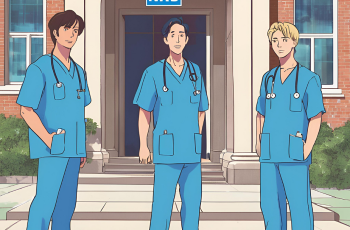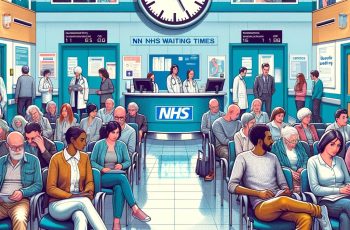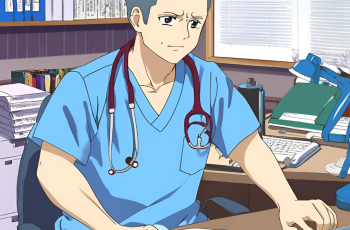As England’s NHS prepares for the winter season, it faces unprecedented challenges due to a surge in seasonal illnesses. Professor Sir Stephen Powis, the NHS medical director, warns that the health service is busier than ever, with 95% of hospital beds already occupied. This situation is exacerbated by rising cases of flu, norovirus, and respiratory syncytial virus (RSV), all of which are pushing the healthcare system to its limits even before January arrives.

The current winter is proving to be particularly difficult, with flu cases reported to be four times higher than at the same time last year. In addition to flu, the NHS is also contending with ongoing COVID-19 cases, which occupy nearly 1,400 hospital beds, and over 140 children are being admitted daily with RSV. The combination of these factors signifies a critical moment for the NHS, as it struggles to manage the increasing patient load.
With only 5% of beds available nationwide, the NHS finds itself with little flexibility to accommodate the influx of patients. The looming threat of a “quad-demic”—comprising flu, COVID-19, RSV, and norovirus—poses a serious risk to the delivery of healthcare services. This scenario is not merely hypothetical; it is a pressing reality that healthcare providers must navigate.
The strain on emergency care is particularly evident, with 67% of ambulances experiencing delays in transferring patients to hospital staff. The target handover time of 15 minutes has become largely unattainable, with the average wait now extending to 44 minutes. Such delays can have dire consequences for patients requiring immediate medical attention, raising concerns about the effectiveness of the emergency care system.
Dr. Tim Cooksley from the Society for Acute Medicine emphasizes that patients are enduring “appalling conditions and prolonged waits.” This situation reflects a broken emergency system rather than one that functions effectively under pressure. The crisis in emergency care also has a domino effect on elective procedures, complicating the government’s commitment to restoring the 18-week target for non-urgent care. As A&E backlogs grow, they inevitably delay surgeries and contribute to the already substantial waiting lists for planned care.
Despite government announcements regarding additional funding and long-term plans, there remains a lack of a coherent strategy to address the current crisis effectively. Seasonal viruses are hitting harder and earlier than in previous years, yet there is little evidence of a coordinated response to manage these challenges. Healthcare staff are working tirelessly, but without a unified approach, the NHS is likely to continue facing recurring crises.
A robust winter plan is essential, which includes addressing staffing shortages, ensuring hospitals have the capacity to handle surges in patient numbers, and prioritizing the recovery of emergency services. Honest communication with the public about the NHS’s capabilities under current conditions is also crucial.
The ongoing strain on the NHS is not solely due to seasonal pressures; it is the culmination of years of underfunding, workforce shortages, and increasing patient demand. Healthcare workers are bearing the brunt of this crisis, with many feeling exhausted and demoralized. The relentless pressure may lead experienced staff to leave the profession, further jeopardizing the system’s stability in the future.

In conclusion, the NHS is facing a critical juncture as it grapples with the compounded effects of flu, COVID-19, RSV, and norovirus. The next few months will test the system’s resilience like never before. It is imperative for the government to prioritize emergency care recovery, allocate sufficient resources to manage winter pressures, and support the NHS workforce to ensure the health service can withstand current and future challenges. Immediate action is necessary to preserve the future of the NHS for both healthcare professionals and patients alike.




